 In 1996, as I was just entering my senior year at Urbana High School, I can remember opening up a copy of The Octopus, the once-revered local alternative weekly, and being absolutely enthralled with it. That particular copy contained a rundown of every single local band that was currently performing in the community. They were listed from A-Z. It was completely exhaustive. There wasn’t a band missing. It was a triumph, within reason. It wasn’t merely because of the sheer volume of bands that the scene had to offer, but also because someone had taken the time to not only compile them, but to write a 20-word blurb about each them as well. From HUM to Marvin Nash to Castor to Token to Hushtower — not a band was missing.
In 1996, as I was just entering my senior year at Urbana High School, I can remember opening up a copy of The Octopus, the once-revered local alternative weekly, and being absolutely enthralled with it. That particular copy contained a rundown of every single local band that was currently performing in the community. They were listed from A-Z. It was completely exhaustive. There wasn’t a band missing. It was a triumph, within reason. It wasn’t merely because of the sheer volume of bands that the scene had to offer, but also because someone had taken the time to not only compile them, but to write a 20-word blurb about each them as well. From HUM to Marvin Nash to Castor to Token to Hushtower — not a band was missing.
I loved it. And it made me proud to call Champaign-Urbana home. It still does. We have a special community here in the middle of the prairie. That’s undeniable.
What has happened since then in the annals of community journalism is a story that isn’t exclusive to C-U. It doesn’t simply exist here locally; it’s worldwide and growing at a rapid pace.
Here is our version:
The Octopus started as The Optimist in the early 1990s — a local left-leaning community project rooted in the need for alternative voices writing about issues that mattered. Once it succeeded in its initial goals and expanded, the owner sold it to a local media conglomerate in the early 2000s. They tried to capitalize on it as best as it could and even changed the name to the C-U Cityview, a feeble attempt to sell it to the “straight” community while trying to keep the liberals on deck, as well. When said conglomerate realized that the bottom line wasn’t worth the time, they folded it.
Community members who cared — and did they ever — picked up the pieces to open up The Paper, in 2001 — a short-lived but decent and honest attempt to re-create the once-dynamic, politically-charged heyday of The Octopus*. When it became sufficiently clear that honest careers couldn’t be made of working at an alternative paper that took City Hall to task and wrote solid pieces about the still-horrific abundance of injustice in town, they too folded, and decided to pack it in.
And when that happened, the local campus paper decided it was time for them to capitalize on the dearth of alternative weeklies in town. Buzz Magazine quickly reinvented itself in an attempt to appeal to more than just campus; they decided to take the “community” on as well. They snatched up a few grad students and townies to head up a renewed version of a once pretty standard and pathetic campus weekly. And it was actually pretty great. And still can be, on some pages anyhow. Needless to say, they are still in business, and we’re glad for that.
All the while this was happening, in 2004, a small group of investors that primarily work in commercial property, bars, and video games decided to open up The Hub, an attempt to answer the gaping hole left by the closing of The Paper, and to try to stave off the uprising of a “community” paper written by college students.
It didn’t last but a couple of years. In October of 2005, it too folded. The reason was simple: it couldn’t sustain financially. The only reason that Buzz can is simply that they don’t have to pay anyone a true salary outside of an “advisor.” Students work for the experience of it all. And that’s why they can sustain. True story.
The reality of the situation is that we are currently in a unique moment in the history of journalism. And the reasons for it are extremely complex. The future is even more of a mystery: we have absolutely no true understanding of what will come next.
For millenia, societies had been relegated to reading the words of those who could afford the means to distribute those writings. First by tablet and horse, leading all the way up to those of whom owned huge machines and gallons of ink. We, the public, had no choice but to at least keep one eye on it, if only for the weather or sports or because your neighbor’s garden was being featured in the Lifestyles section. It helped define our communities, and — love it or hate it — was, and to a degree still is, an important part of living in a community. It was the only “voice” we had.
But the world has a funny way of taking care of these things, as you have gathered. Things got very different very fast.
Which brings us to now. And here we are. You are reading this. You likely read this often. It’s Smile Politely, and it’s online, and it’s free. No one here makes a living doing it. In fact, no one even gets paid. For realz.
And here is something to note as well, in case you didn’t get the memo by now: despite the fact that it’s “ours,” it’s really yours, too.
I mean that.
In the summer of 2007, I met separately and together with both Mason Kessinger, the web designer of the magazine, and Brian Mertz, one of the people who helped develop the skeleton of what this would be become, and we came to one overarching, and definitive, conclusion: Champaign-Urbana needed this, and now.
Since quitting Buzz Magazine in 2006, where I wrote a poorly-written and unedited column for three years, I couldn’t stop feeling a massive sense of genuine frustration with the journalistic options that we had in town. The News-Gazette is run by stooges for the most part; conservative power-players who wouldn’t know justice if a policeman shot them outside of their cookiecutter homes. And the Buzz/217.com is run by a person who really has no understanding of what it could, and should, do best: cover Campustown and do it really well. After all, these are young and inexperienced students, and trying to pretend that it’s a “community” magazine is so transparent and disingenuous that it serves to hurt what could be an absolutely amazing weekly.
No. Until Smile Politely, there was nothing left for us — the movers and the stayers in Champaign-Urbana. We are the people who live here now, and need to read something, anything, that isn’t in part dictated by advertising dollars, or by conservative thinking so antiquated that it makes Reaganomics seem en vogue.
But it’s here now. You are reading it. We’ve established ourselves. And we’re two years old.
We’ve sold about ten advertisements over the course of 24 months without ever having to lift a finger really. It’s been enough to keep us online, buy a small banner, a table, a tent, space at the Farmer’s Market, a computer, two batches of informational postcards, a gross of stickers, 77 commemorative pint glasses (one of which you can have), 5,000 coasters (to be seen in bars soon), three joints (that’s a marijuana cigarette for those of you News-Gazette readers) and enough beer to get a small volunteer staff of genuinely engaged writers drunk about ten times.
So, yeah. We’re doing pretty well. We like to think so, anyhow.
And that brings me to this: that thing that I stated above? That whole sugary bullshit about how this paper is “really yours?” Well, it is.
You can write for us, illustrate for us, edit for us, help promote us, sell ads for us (we’ll even give you commission), decide to hate us, comment on our articles — anything you want. We’re truly all-inclusive, you know? We’d love to have a few intelligent conservative voices as well, if you are feeling up for it. And perhaps your perspective on Illini hoops is different that Rob’s? That’s cool, too. You could write a series on the South Farms — its history, the present, and where it’s going. You could dive into Savoy, perhaps? Who runs that town anyhow? Is there a mayor? I seriously have no fucking clue.
But that’s the point. There are a ton of things to cover in our beautiful twin towns plus suburb. It’s endless. Truly and definitively. Endless.
So, to celebrate the end of the year, we’ve decided to follow suit to previous weeks and highlight our favorite articles of the decade. And it wasn’t all that difficult either since we’ve only been around for two years. Again, by no means are these what we think are the “best” or “most important.” They are simply a collection of what the current editorial staff considers to be exemplary pieces of local journalism, written for nothing except pride, and perhaps a beer or five at some point down the line.
Now that’s a community “paper.” We hope you’ll join us, or at the least, continue to read us and give us your feedback.
— Seth Fein
Co-Founder / Editor
* It was also around this time that the Public i, a print paper produced by the Independent Media Center where writers do it for justice to be served, started to take shape as well. We’re thankful for their efforts, as they stand for things that we find to be consistent in nature to ourselves.
<><><><><><><><><><><><><><><><><><><><><><><><><><><><><><><><><><><><>
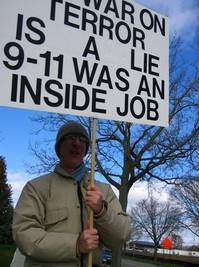 “Bringing the 9/11 Truth movement to your local street corner” by Adam Scott (Friday November 16, 2007)
“Bringing the 9/11 Truth movement to your local street corner” by Adam Scott (Friday November 16, 2007)
Written before the magazine was even launched, Adam Scott was one of the first writers at Smile Politely to set a particular precedent for the rest of us. In order to get a good story, in order to make people think, one had to put a little elbow grease into their efforts. In this article, Adam decided to dig a little deeper into the small but vocal group of people locally who felt that, despite the lack of hard evidence, believe that the 9/11 attacks on America were an inside job. It’s something that the News-Gazette wouldn’t dare cover, and helped establish SP.com as a space in which these articles could not only be published, but also be taken seriously.
<><><><><><><><><><><><><><><><><><><><><><><><><><><><><><><><><><><><>
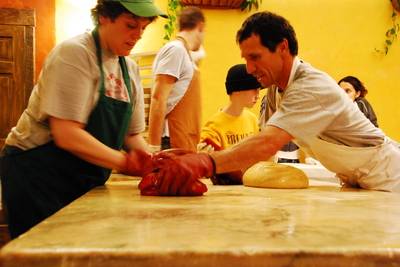 “Vriner’s Confectionary: Age old sweet makers without a home” by Seth Fein (December 14, 2007)
“Vriner’s Confectionary: Age old sweet makers without a home” by Seth Fein (December 14, 2007)
Part of what makes a community into more than a gathering of people and their homes, are the intricate and sometimes sad tales that define them. Such was the story here when SP founders Seth Fein and Justine Bursoni went looking for a piece of candy two winters ago, and came back with a little history to boot. For anyone who has lived here for more than a few years, Vriner’s should be as familiar to you as Lou Henson, the Chief, or the Alma Mater. For those of you who don’t have any clue as to what we’re referencing, click the link and relive a piece of Champaign’s extremely illustrious past.
<><><><><><><><><><><><><><><><><><><><><><><><><><><><><><><><><><><><>
 “This is pretty, and this is ugly” by Rob McColley (February 24, 2009)
“This is pretty, and this is ugly” by Rob McColley (February 24, 2009)
Provocative, confounding, funny. Uses cuss-words without being cute about it. Calmly disembowels his critics in the comments section. Rob McColley has built a well-deserved following for his insightful and humorous Illinois basketball coverage. But I have always looked forward to reading his columns, which range from rants about local noise ordinances to speculations about Supreme Court justices. I nominate “This is pretty, and this is ugly” as one of my favorites, where he walks around Urbana with a camera and notes the difference between architecture and vomit. — Dan Schreiber
<><><><><><><><><><><><><><><><><><><><><><><><><><><><><><><><><><><><>
 Life, liberty, and the pursuit of property by P. Gregory Springer (May 11, 2009)
Life, liberty, and the pursuit of property by P. Gregory Springer (May 11, 2009)
I hereby recommend Life liberty and the pursuit of property, in which P. Gregory Springer discusses Bhutan, pie, strippers, Batman, social security and, of course, God. But it’s really about what “wealth” is.
It also has 52 comments of great reading, with appearances by some of SP’s finest, including a deadly square-off between an Objectivist libertarian (but no Jeffersonian) and the Marxist wackos writing for this site. — RH
<><><><><><><><><><><><><><><><><><><><><><><><><><><><><><><><><><><><>
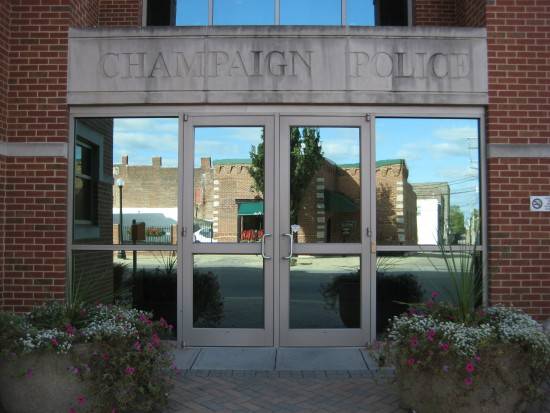 “Riding Shotgun” by Matthew Campell (September 30, 2009)
“Riding Shotgun” by Matthew Campell (September 30, 2009)
It is a widely recognized truism that police officers have a very hard job, but what gets less recognition is that the things that make their jobs hard isn’t always printed on the front page of the paper. Most of the time its tucked away in the crime blotter. In reading Matt Campbell’s subtle and faintly literary account of riding along with CPD Officer Ben Newell I got the impression that he had begun to scratch the surface of this highly demanding and strangely repetitive profession. Especially relevant in light of the most recent occurrences in our community, it’s most definitely worth another read. — CDC
<><><><><><><><><><><><><><><><><><><><><><><><><><><><><><><><><><><><>
 “The Writings of Stuart Tarr” — Here, here, and here (October 15, 21, 29, 2009)
“The Writings of Stuart Tarr” — Here, here, and here (October 15, 21, 29, 2009)
Robert Hirschfeld
English/History/Chemistry/Warfare/Agriculture
Stuart Tarr
Dec. 10, 1990
Stuart Tarr is the writer I most admire on Smile Politely. He is very engaging and is willing to probe important topics that you can tell he’s thought a lot about. I especially liked his series of articles which includes “Fertilizer, pesticides, and weaponry”; “Pipelineistan”; and “Dead dirt.” In these three articles, he talks about one of my favorite topics, dirt. No, I’m not kidding. I love dirt. I’m also interested in energy, food, geopolitical history, and the coming apocalypse, so you can believe me when I tell you Stuart Tarr is the best. Everyone should read Stuart Tarr. — RH
<><><><><><><><><><><><><><><><><><><><><><><><><><><><><><><><><><><><>
 “Ties that Bind” by Cheryl Barnett (October 21, 2009)
“Ties that Bind” by Cheryl Barnett (October 21, 2009)
Most of the time when a writer sets out to compare two completely different cultures with one another she or he risks irrelevancy as the worst of this writing tends to reduce both cultures into a mushy hodgepodge of pollyannaish cum-bay-ah Disney babble. On the other hand, the best tends to acknowlege difference while simultaneously insisting on a greater connection that transcends those differences. Cheryl Barnett’s firsthand account of American and Afghani culture accomplishes this while being honest, touching and funny all at once. The pictures are great too. — CDC
<><><><><><><><><><><><><><><><><><><><><><><><><><><><><><><><><><><><>
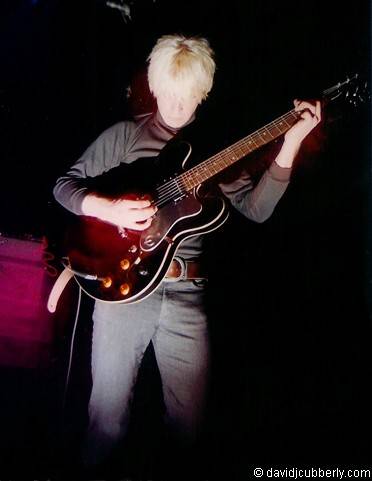 The Top 20 C-U Albums of the Decade by Smile Politely Writers / Doug Hoepker (October 28, 2009)
The Top 20 C-U Albums of the Decade by Smile Politely Writers / Doug Hoepker (October 28, 2009)
From an outsider’s perspective, the mere fact that a town the size of Champaign-Urbana is able to compile a list of 20 local records is an astonishing fact. What puts that over the top is the idea that C-U has produced so much content-and quality content at that-that it was possible for Smile Politely to assemble a list of the highest quality recordings from the past ten years, complete with a well-rounded list of honorable mentions that didn’t make the initial cut.
For the unacquainted, the piece serves as an introduction to the past ten years of C-U’s thriving music scene. Doug Hoepker’s introduction catches you up to date fairly well and nearly every entry includes the discussed record’s cover and an audio clip, making it possibly the most thoroughly-researched entertainment piece in Smile Politely history. It is easy for the unfamiliar reader to draw parallels from C-U bands to those in other communities, or to the general ebb, flow and nuances of any scene. For those well-acquainted with C-U’s history, the piece serves as a much-needed retrospective of the joys of days past — a chance to look back, smile, and thank god you’re still alive. For the most part, everyone was given a tip of the hat. No one felt too snubbed, too shafted or too overlooked. And for that, we should not only be thankful for the congenial spirit of the scene, but also for the existence of the members of the music community itself and those that support it. Add that to your Thanksgiving list next year. Others aren’t as fortunate as you.
<><><><><><><><><><><><><><><><><><><><><><><><><><><><><><><><><><><><>
 Is your recycling being dumped in a landfill? by Brenda Koenig (November 5, 2009)
Is your recycling being dumped in a landfill? by Brenda Koenig (November 5, 2009)
It’s always nice to see some investigative journalism on SP. Brenda Koenig delivered the goods in her expose on C-U recycling (or the lack thereof), pounding the pavement and looking for answers to some pointed questions about what happens once the bin leaves your curb. Its roots harken back to the first article above; those who put in the time and effort in order to uncover what is really happening in our community enact change both virtually, and in reality. Brenda, you’re on notice. I’m now eagerly awaiting Part II. — RH & SF
<><><><><><><><><><><><><><><><><><><><><><><><><><><><><><><><><><><><>
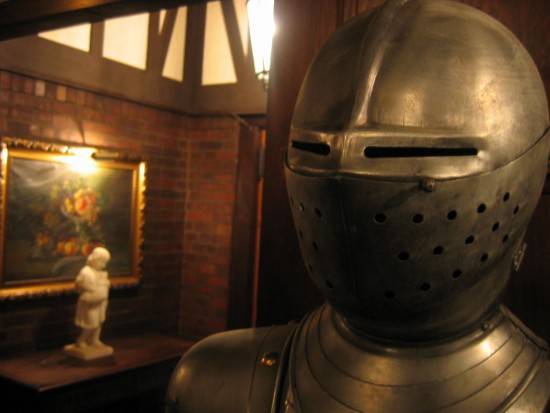 “We haven’t had that spirit here since 1969” by William Gillespie (March 18, 2009)
“We haven’t had that spirit here since 1969” by William Gillespie (March 18, 2009)
Whether you know it as the Lincoln Hotel, Jumer’s, or by some other name, the huge building at the northwest corner of Lincoln Square Mall in Urbana certainly provokes a reaction. William wrote an atmospheric, poetic, and downright creepy piece (“There are so many places to hide a body.”) after taking a walk through the place last spring.
It was a wonder that the place was still open. And that wonder didn’t last long, as less than a week later the hotel closed “indefinitely” for repairs. That news was soon followed by a notice of foreclosure on the property, and the subsequent attempt to sell it, which is still ongoing.
<><><><><><><><><><><><><><><><><><><><><><><><><><><><><><><><><><><><>
 The Safe Haven series — Part 1, Part 2, & Part 3 by Heather Dillon (July 2-7, 2009)
The Safe Haven series — Part 1, Part 2, & Part 3 by Heather Dillon (July 2-7, 2009)
Far too often, the poor in our community are treated by local governments and dominant media as threats to property values and public safety rather than human beings. Heather’s series on Safe Haven looked at the group in the context of similar settlements springing up around the country as the economy continued its route to the bottom, and emphasized the ideals which they were striving to achieve. This isn’t something that was just happening in Champaign, there were out-of-work software engineers in Redmond, Wash., and laid-off factory workers in Florida living in tents. It was a turning point in the tone of local media coverage toward the group which, despite continued hostility from the powers-that-be, has managed to survive.
<><><><><><><><><><><><><><><><><><><><><><><><><><><><><><><><><><><><>
 Middle School Girl Syndrome by Dan Schreiber (February 19, 2009)
Middle School Girl Syndrome by Dan Schreiber (February 19, 2009)
Dan’s columns run the gamut from politics to religion to parenting, and it’s certainly hard to pick one to feature. My personal favorite was this treatise on parenting, which included the priceless line, “Middle school girls are like the Amish, in a way — they both use shunning as the primary method of control and assimilation.” Dan’s always been able to handle heavy issues with a light touch, none more effectively than this one. — JG








